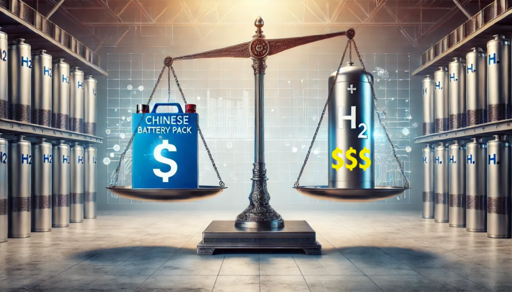Simple. The age of gas cars is over and anyone who doesn’t adapt is history.
Also, at 1kWh@0.2€ it’s about 330 charges of free energy (that would otherwise be wasted) to pay it off.
Which is impressive.
Interesting read, thanks for sharing. :)
Concern: will there be enough lithium to continue battery based electrification at the current pace?
Consideration: are sodium-based battery technologies following the curve of lithium based technologies? (Because unlike lithium, they won’t be limited by access to raw material.)
Lithium is the 31st most abundant element on earth. Running out of lithium is not a realistic concern.
Being 31st doesnt have any meaning by itself tho. That could mean that its super common or super rare, it means literally nothing. Also unless its in read to use form, you have to process it somehow which itself might be a bigger issue than availability.
There is so much Lithium out there we just need to look for it now that we need it. It’s not hard to find, we just need to look.
And when we look, we keep finding massive amounts of it, because it’s so common
Nice to know that they can also extract it from seawater. :) Sodium is already (more) available in that way.
Sea water also has more gold in it than within the dirt. There’s a very good reason why we don’t extract minerals from the ocean.
I’m sorry I’m just so distracted by that thumbnail. Why are the plates at the same height while the arm is so tilted?
Because it’s genAI of course…
ChatGPT generated panoramic image of a Chinese battery pack on one side of a scale and a tank labeled “H2” on the other, with the battery pack side much lower
Because AI can’t into logic
I guess these batteries are going into buffers rather than cars. How do they compare work energy density and cost to the liquid sodium batteries?
Probably both, though a bit pricier for EVs but not that much - as article states.
Implicatipns are simple and well known - chinese slave workers.
Funny how you’re getting downvoted by people who just don’t want to admit that they’re encouraging it
Maybe it happens in isolated incidents but it’s certainly not widespread in any battery factories I’ve visited. These factories are incredibly automated because their government is pumping tons of money into battery manufacturing. Any foreign company purchasing these batteries is basically talking a subsidy from the Chinese government, it’s a good deal for everyone except the wider Chinese economy in the short term really.
Factory labor is typically from rural parts of the country where there is less opportunity, but the Chinese attitude toward holidays is much better than we have particularly in the USA. By coordinating the whole country gets several week long holidays a year to return to their hometowns or to do larger vacations with truly no pressure to think about work during that time. The standard of living in China has drastically risen over the previous 2 decades and companies simply can’t get away with the same level of poor working conditions they used to be able to. There’s a reason that so many companies are moving their manufacturing to other parts of SE Asia, labor in China simply isn’t that cheap anymore.
The sheer amount of slaves in China is impressive - they basically create everything over there it seems.
It’s totally not artificially low price of their currency propping exports. China totally wasn’t buying US bonds for decades to keep this up. No, this is marxist-lenninist social media, we believe in slaves here. Everything cheap=slaves. No other possibilities exist.
In reality, it’s a mix.
Extreme exploitation of labour (and in some cases, outright slavery) is a thing, and Chinese companies are no strangers to doing it. Independent trade unions don’t exist in China and their state sees independent political players as a threat. As a random and recent sample: Chinese maker of battery electric vehicles building a factory in South America - workers were found to have slave-like conditions.
However, Chinese companies are also pursuing automation and robotics very seriously.
In reality, it’s a mix.
The worker conditions in china are definetly shit, but I doubt slavery (and I mean real slavery, like gulags in USSR or cotton plantations in USA) have meaningful share in chineese GDP





